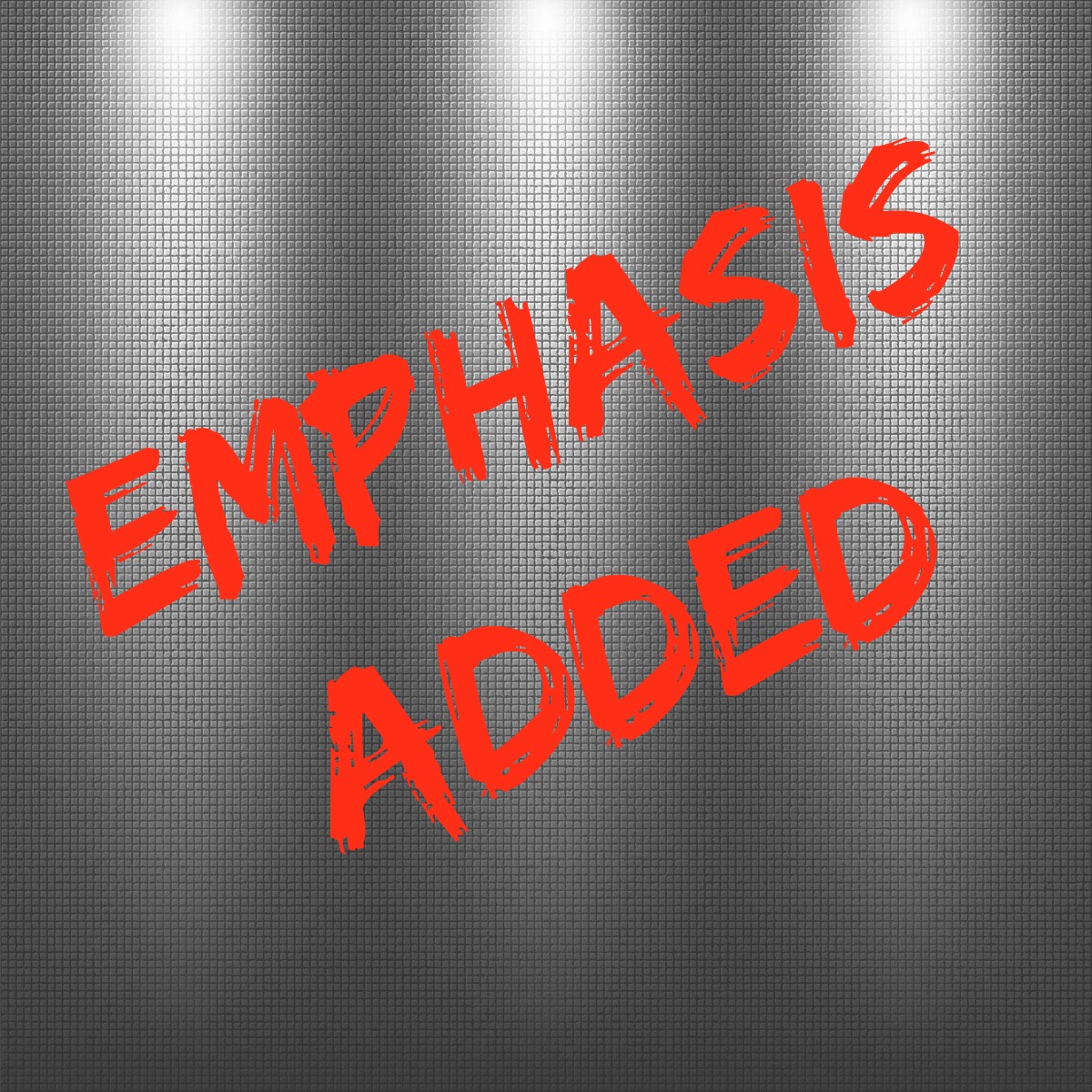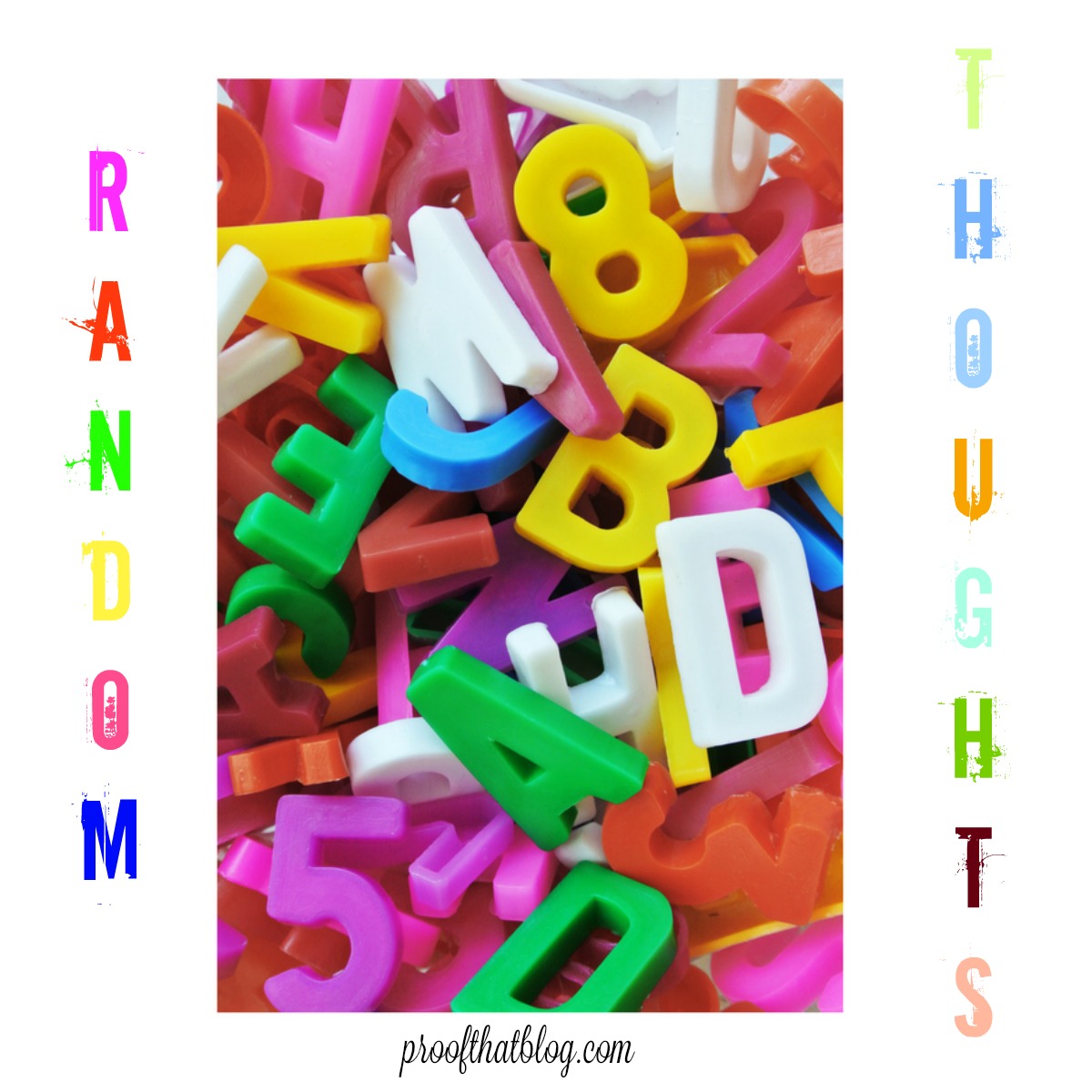 I had a question during a presentation I was making about whether the phrase “emphasis added” when used with a quotation was treated in the same font as the emphasized language, for example, if the emphasized language is bolded, is the phrase “emphasis added” bolded?
I had a question during a presentation I was making about whether the phrase “emphasis added” when used with a quotation was treated in the same font as the emphasized language, for example, if the emphasized language is bolded, is the phrase “emphasis added” bolded?
According to the Bluebook Section 5.2(d)(i),
Use a parenthetical clause after the citation to indicate when the source quoted contains an addition of emphasis . . . .
Their example has the emphasized language italicized and the “emphasis added” in parentheses, but not italicized or bolded.
Other information I found shows the following:
She said she would consider “a very short extension of the deadline, but only under the most extraordinary circumstances [emphasis added].”
- You can also note the emphasis outside the quotation using parenthesis and as a separate sentence:
She said she would consider “a very short extension of the deadline, but only under the most extraordinary circumstances.” (Emphasis added.)
- Or you can put the parenthetical at the end of the sentence which contains the quotation:
She said she would consider “a very short extension of the deadline, but only under the most extraordinary circumstances” (emphasis added).
- Most other sources indicate that the words “emphasis added” should be at the end of the sentence, either in parentheses and lowercase letters before the quoted sentence’s ending punctuation or in parenthesis with upper case “e” in “emphasis” after the quotation’s ending punctuation with a period within the parenthesis. See the examples above.
The one common thread through all the sources was to be careful not to overuse emphasis in your writing.
I did not find anywhere that the words “emphasis added” should ever be italicized or bolded to match the quoted language being emphasized. My suggestion is that since the Bluebook specifically says to use a parenthetical clause after the quotation and their example shows it added before the quotation’s ending punctuation as in the third example above, that would be the safest way to use it.
 It’s time for “Confusing Words of the Week” where I take a set of two or three words that get confused and give you definitions and try to give you a memory trick to help you remember when to use which word. If you have words that confuse you, use the Ask PTB tab on the website or send an email to proofthatblog@gmail.com and they may appear here soon!
It’s time for “Confusing Words of the Week” where I take a set of two or three words that get confused and give you definitions and try to give you a memory trick to help you remember when to use which word. If you have words that confuse you, use the Ask PTB tab on the website or send an email to proofthatblog@gmail.com and they may appear here soon!

 Follow
Follow It’s time for a review of recent blog posts just in case you’ve missed them. We call this Replay Thursday. Here are posts from Proof That proofreading blog and 60 Is The New 60 blog during the past couple of weeks.
It’s time for a review of recent blog posts just in case you’ve missed them. We call this Replay Thursday. Here are posts from Proof That proofreading blog and 60 Is The New 60 blog during the past couple of weeks. Here are a few things that I’ve come across lately and thought you might find interesting:
Here are a few things that I’ve come across lately and thought you might find interesting: I had a question during a presentation I was making about whether the phrase “emphasis added” when used with a quotation was treated in the same font as the emphasized language, for example, if the emphasized language is bolded, is the phrase “emphasis added” bolded?
I had a question during a presentation I was making about whether the phrase “emphasis added” when used with a quotation was treated in the same font as the emphasized language, for example, if the emphasized language is bolded, is the phrase “emphasis added” bolded?